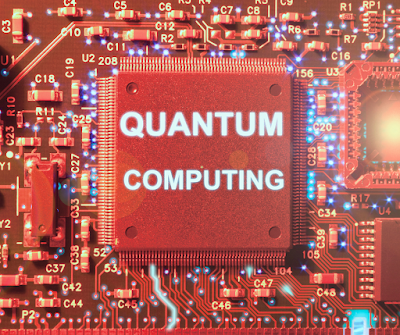Quantum Computing: Unleashing the Power of the Subatomic [ UPDATED]
Quantum computing stands at the forefront of technological advancement, poised to revolutionize the way we process information. Unlike classical computers that use bits to represent data as 0s and 1s, quantum computers leverage the principles of quantum mechanics to create qubits, which can exist in multiple states simultaneously. This ability has the potential to solve complex problems that are beyond the reach of classical computers. In this article, we delve into the world of quantum computing, its inner workings, potential applications, and the challenges it presents.
Understanding Quantum Computing
Quantum bits or qubits, the fundamental units of quantum computing, differ from classical bits in that they can exist in a superposition of states. This means a qubit can represent both 0 and 1 simultaneously, allowing for vastly increased computational power. Additionally, qubits can be entangled, meaning the state of one qubit instantaneously affects the state of another, even if they are physically separated.
How Quantum Computers Work
Quantum computers utilize principles like superposition and entanglement to perform operations on qubits. They employ quantum gates, which are analogous to classical logic gates but operate on qubits' quantum properties. Quantum computers solve problems using quantum algorithms, such as Shor's algorithm for factoring large numbers exponentially faster than classical computers.
Potential Applications
Cryptography: Quantum computers have the potential to crack encryption algorithms that are currently considered secure, threatening online security. On the flip side, quantum cryptography could offer unbreakable encryption methods.
Optimization Problems: Quantum computers excel at solving optimization problems prevalent in fields like finance, logistics, and drug discovery.
Machine Learning: Quantum machine learning could accelerate training processes for AI models.
Molecular Simulation: Quantum computers can simulate complex molecular interactions, aiding drug design and material science.
Artificial Intelligence: Quantum computers can potentially improve AI algorithms by handling complex calculations more efficiently.
Challenges and Limitations
Decoherence:
Qubits are sensitive to environmental interference, causing loss of quantum states. Maintaining qubit stability is a major challenge.
Error Rates:
Quantum operations are susceptible to errors due to factors like noise and imperfections in hardware.
Scalability:
Building quantum computers with a high number of qubits is challenging due to technical limitations.
Specialized Problems:
Quantum computers excel at certain problems but might not be universally superior to classical computers.
Cost:
Quantum computers require extremely low temperatures and complex setups, making them expensive to develop and maintain.
FAQs (Frequently Asked Questions)
1. What is superposition in quantum computing?
Superposition allows a qubit to exist in multiple states simultaneously, enabling quantum computers to process a vast amount of information at once.
2. How does quantum entanglement work?
Entanglement is a phenomenon where the state of one qubit becomes linked to the state of another, even if they're physically apart. Changes to one qubit instantaneously affect the other, enabling faster communication and complex computations.
3. Can quantum computers replace classical computers?
While quantum computers offer immense computational power for certain problems, they're not expected to replace classical computers entirely. Quantum computers are best suited for specialized tasks that classical computers struggle with.
4. Are quantum computers practical for everyday use?
As of now, quantum computers are in their infancy and are primarily used for research. Practical applications are still being explored, and it might be several years before they become more accessible for everyday use.
5. Are there programming languages for quantum computing?
Yes, several programming languages like Qiskit and Cirq allow developers to write and execute quantum algorithms on quantum computers and simulators.
Quantum computing holds the promise of transforming industries and solving problems that were once considered insurmountable. Despite the challenges, researchers and companies worldwide are investing in quantum technology to harness its potential. As the field continues to advance, quantum computers could unlock new frontiers in science, technology, and our understanding of the universe.

Comments
Post a Comment